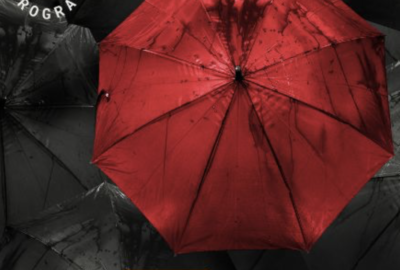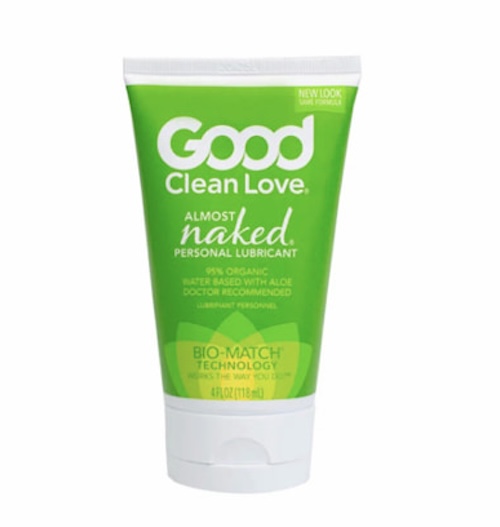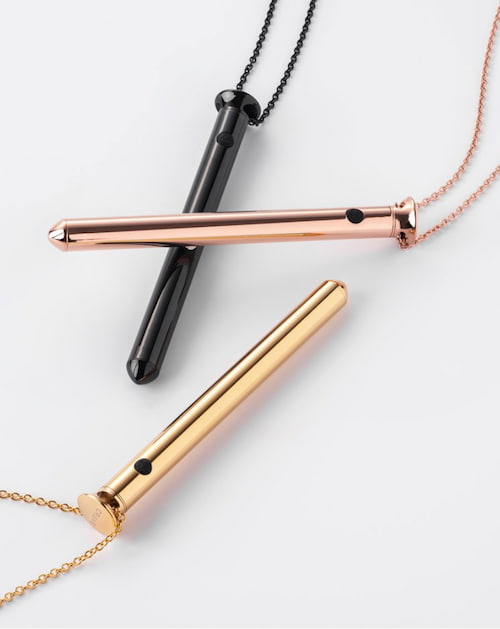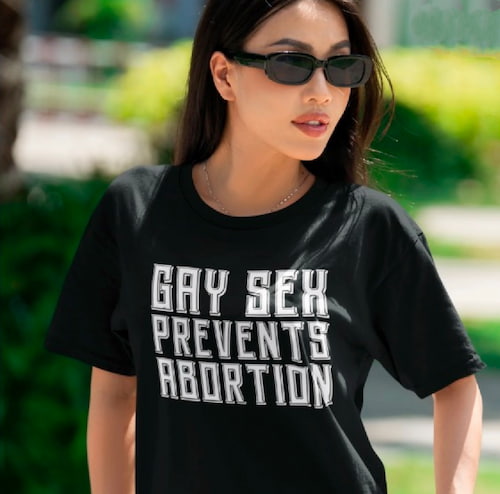Articles, Interviews
What is Gamergate? – Misogyny in Gaming
It was Christmas afternoon in 1996. The adults were cooking and drinking upstairs, and the kids, myself included, were still in love with the plastic goodies we’d just earlier unwrapped. My prize for the holiday was a huge Hot Wheels racing track: multi levels, bright colors, trap doors, and zippy cars included. My cousins, sibling and I happily played in our grandparent’s game room, Suddenly, an interloper appeared. A distant cousin, I still to this day can’t remember his name. But he was a couple years older than me, and he was eyeing my car track. Tension. Silence. Then he spoke, accusingly, “That’s yours? That’s not a toy for girls.” He stomped off. I waited, nervous. I thought he would return and smash it. I ran to my mother. I didn’t want to play with the cars anymore.
It is eighteen years later. The holidays are upon our asses, and I have a daughter of my own. Hot Wheels are still in existence, but these days I hear more about Grand Theft Auto.
I’m unfamiliar with video games. When Burro asked me to explore the problems with the tech world, I was reticent. The things I found were saddening. Gamergate. Brianna Wu. Anna Sarkeesian’s bomb threat. How had I missed all of this?
Writing, like social change, tends to occur in phases and cycles.
Scene 1: Me and Male Companion #1, seated on my couch, one afternoon. I sipped my tea, “I’m writing about under-representation of women in video gaming, I think.” He turned his head. “Is that a problem?” he asked, honestly. “Most women don’t play video games.” I paused, knowing well enough at this age that it’s better to not argue a point of which I know nothing. “I really don’t know. I mean, I don’t, obviously some women do. I’m going to dig around the Internet and talk to people.
Scene 2: To Husband, at the dinner table. “So I’m researching women in gaming and the Gamergate thing, and it looks like there’s actually a lot of harassment that happens, specifically to female players.”
Husband looked up from his plate, squirted some ketchup on our daughter’s tray. “Be careful with that. You had better write under a pseudonym. Those angry nerds are the worst ones to piss off. Seriously.”
Scene 3: Me, typing on Facebook chat to Male Pal #1 “I don’t know anything about gaming, but I’d love to speak to women gamers, if you know any.” Male Pal #1: Most of ‘em just want to play, and not have their gender be an issue.
Scene 4: Via text message, Male Buddy #1, “Do you know any sources regarding discrimination against female gamers?”
“In all honesty, it’s becoming more and more open to women, tech and traditional nerd workplaces, but the hostility towards women is growing too.”
As a parent-sex-worker-feminist-non-gamer, my blinders tend to be on towards things that seem innocuous. And naively, I hadn’t assumed that gender inequality would have bled into and subsequently infected the gaming world. So began my research into an unknown macrocosm. I didn’t grow up with Nintendo, I’ve touched an Xbox approximately ten times in my life, and it was to navigate toward Netflix. I can’t name a single Bioshock character, and please don’t ask me to remember what RPG means. But but but feminism!
Gender inequality is a broad subject. When thinking feminism I think, “wage inequality” “Robin Thicke sucks” “reasons I stay away from 4chan” “Daniel Tosh hates sex workers.” I think of Beyoncé on stage, I think of Beyoncé holding Blue Ivy. I think about the sex workers who are murdered while working, or while living, and I think about Fox News anchor Kimberly Guilfoyle telling girls to get back on Tinder and not vote in the elections.
Argument #1: “Women don’t play games.”
Response: In 2014, the Internet Advertising Bureau concluded that women account for 52% of gamers. Curiously enough, this is nearly identical to the percentage of gender that makes of for the population of the world, which leads me to believe that the sample size is large enough to be representative for women’s needs. This study considers all interactive, social media games to be included, not just masculine first person shooter fantasies like Call of Duty or Halo.
Argument #2: “Scrabble isn’t a real game and besides even that can’t possibly be a hostile environment.”
Response: If Scrabble isn’t a real game, then golf isn’t a real sport, and last I checked, golf is indeed on ESPN. Mobile games, free-to-play games, social games are all indeed, games. A few Cosmopolitans will get you just as drunk as a few Old Fashioneds, and Barbie and GI Joe are both indeed dolls. Masculine appeal does not equate to legitimacy of an item.
And regarding harassment? Plenty of women know not to keep a profile photo on Words with Friends, like my friend Erika, who removed her pic after more than a couple strangers told her that they wanted to ‘jizz on her glasses’. “I have walked into video game stores and been treated differently because I’m a girl. I was treated like I didn’t know what I was talking about. My most recent encounter was buying the limited edition Legend of Zelda: A Link Between Worlds 3DS. One of the workers, a male, tried to discourage my purchase because Zelda isn’t a ‘girls’ game”, says Tabitha, a gamer of twenty years.
Argument #3: “Most games are fantasy, and people tend to want sexy or tough-looking characters”
Nobody here not asking for amorphous figures, but a few options would be nice. In 2011, IGN.com wrote a funny little bit entitled “The Devolution of Character Designs- or, ‘How Every Game Hero Looks Like Vin Diesel’.” Not that there’s anything wrong with a muscular, shaved head white guy, but expanding the character options would likely lead to a broader appeal, without zapping the art department budget for the production company. “I think all this requires is better self-awareness from developers,” says Mitu Khandaker-Kokoris, of one-woman studio Tiniest Shark, “If you are spending money on all kinds of variety with your male characters, then why is your budget not designed from the ground up to account for female characters too?”

Rhianna Pratchett, writer of two huge and recent female-led games Lara Croft reboot and Mirror’s Edge, says that, “It’s not really about taking risks, it’s about catering better for the existing audience. Game of Thrones has some wonderful female characters, without putting off male viewers. Likewise, it has some great male characters without putting off female watchers. Tomb Raider wouldn’t have sold 3.6m in its first month of sales if the audience had a problem with female leads.”
Argument #4: “RPG Games are hostile environments where everyone gets insulted.”
Response: Male players don’t insult other male players for being a white, heterosexual male, but rather have been known to target players once they suspect them to be female. Therefore, insults relating to those who have been historically oppressed, i.e. women and ethnic minorities still have social repercussions.
Kabra, a thirty one year old gamer of twenty five years, says “I played WoW for about five years. And thankfully I normally played with my husband and other couple friends so if anyone was ever rude to one of us we had a built in support structure. I shy away from Ventrilo and voice chats simply because I don’t want to risk the slander and abuse if I’m playing on my own.”
Elle: “Have you experienced that before?”
Kabra: “Only once. And I disconnected immediately and reported both players.”
Elle: How soon in to the game, did harassment occur?
Kabra: “It was during a big group and so there were about 30-40 people on the voice chat. I asked a question and was immediately berated for being an airhead chick.”
Says Nina, “My husband is color blind and wears pink armor in his games because that’s a color he can see. He has told me on numerous occasions he’s been tea-bagged by other players. Then they find out he is male and shit changes quickly.” Added her friend Maurice, a male; “My clan in Halo 3 was “The Pink Chiefs” in response to all the fag and bitch calling.”
Argument #5: “But still its just name calling; who cares?”
Response: Unfortunately, it goes beyond verbiage. The differential treatment of women in a traditionally male arena runs the gamut from mildly sexist verbal diarrhea, to potential harm and death. When blogger Anita Sarkeesian published her now infamous video “Tropes vs. Women in Video Games” on feministfrequency.com in March 2013, she was pointing out that female characters are typically used as props for violence inflicted upon them, as the damsel in distress cliché, or not represented at all. In response, she was immediately met with thousands of rape and death threats, via YouTube and Twitter.
Upon Googling Anita Sarkeesian, it’s easy to find a handful of poorly photo shopped memes, referring to her as ‘insidious” a “lying twat” “terrible” and even the game created by a man named Ben Spurr “Beat up Anita Sarkeesian”, which was recently pulled.

In March of 2014, an anonymous e-mailer threatened to detonate a bomb at the Game Developers Choice Awards unless the hosts cancelled an award being given to Sarkeesian. The email stated the following:
“A bomb will be detonated at the Game Developer’s Choice award ceremony tonight unless Anita Sarkeesian’s Ambassador Award is revoked. We estimate the bomb will kill at least a dozen people and injure dozens more. It would be in your best interest to accept our simple request. This is not a joke. You have been warned.'”
San Francisco Police Department’s dispatched their Explosive Ordinance Disposal Division, which sent officers and bomb-sniffing dogs. Nothing was found. The award show was completed without incident. In October, another threat was lodged at Sarkeesian, this time she was slated to speak at Utah State University. A letter, reportedly sent by a Utah State University student, threatened to commit “the deadliest school shooting in American history”. And since Utah allows the concealed carry of licensed gun registrants, law enforcement refused to remove weapons of attendees. Sarkeesian cancelled her speech. The sender of the threat has not been discovered, at this writing.
Thousands of threatening YouTube comments, hundreds of emails and Tweets and three bomb threats within a few months, simply because Sarkeesian pointed out inequalities in video games. As any good humanist knows, any conversation regarding feminism usually reinforces the need for feminism.
One might typically consider a bully to be a chest beating, low-intelligence-jock-gorilla-stereotype, and yet we’ve now learned that misogyny can also be the cheetah-fingered nerd virgins lurking in a basement near you. Nerds, and the ones who can hack into your life, are really the wrong ones to piss off as evidence by the words of Software engineer Brianna Wu, in her piece for The Guardian entitled Rape and death threats are terrorizing female gamers. Why haven’t men in tech spoken out? Wu briefly describes some of her experience:
“I became Gamergate’s latest target when I tweeted this joke about supporters of the movement:”

“The next day, my Twitter mentions were full of death threats so severe I had to flee my home. They have targeted the financial assets of my company by hacking. They have tried to impersonate me on Twitter. Even as we speak, they are spreading lies to journalists via burner e-mail accounts in an attempt to destroy me professionally… They’ve threatened to rape me. They’ve threatened to make me choke to death on my husband’s severed genitals. They’ve threatened to murder any children I might have. This angry horde has been allowed to wage its misogynistic war without penalty for too long. It’s time for the video game industry to stop them.”
Argument #7: “You can’t change the world.”
Response: Yes, we can, and we’ve already begun.
In her simply beautiful piece “Social Justice Warriors and the New Culture War”, Laurie Penny offers us this:
“This is a culture war. The right side is winning, at great cost. At great personal costs to people like Anita Sarkeesian, Leigh Alexander, Zoe Quinn and even Jennifer Lawrence, and countless others who are on the frontlines of creating new worlds for women, for girls, for everyone who believes that stories matter and there are too many still untold. We are winning. We are winning because we are more resourceful, more compassionate, and more culturally aware. We’re winning because we know what it’s like to fight through adversity, through shame and pain and constant reminders of our own worthlessness, and come up punching. We know we’re winning because the terrified rage of a million mouthbreathing man-child misogynists is thick as nerve gas in the air right now.”
I’ve realized that Adults maintain their beliefs, based on what they have been indoctrinated with, or exposed to, in childhood. Are we educating our children? Or are we indoctrinating them? This is a call to parents and caregivers to LET YOUR CHILD PLAY WITH WHAT THE FUCK THEY WANT. Take a stroll down the toy aisle, and let them do the choosing. But if you’re reading Burro, you probably already know this.
Last month, I was at the OMSI gift store with my two-year-old daughter. She watched, fascinated as the shop employee zipped a remote control car around the store. She giggled as he drove it near to her. I thought fondly of the remote control car my father had bought my sister, and me years ago. She reached out to the employee. He spoke, “Yeah, these are fun! If you have a big brother, he can show you how to use it.” I stood there, smiling quietly. “Or I can.” He quickly agreed, “Yes, yes, or you could.”
Games are supposed to be fun for everybody. Gender roles should be fun for everyone too: Fun to explore, fun to embrace, fun to fuck with. I didn’t buy her the remote control car; she’s too young for that toy. I will, however, purchase her some Hot Wheels racing tracks.




























Leave a reply